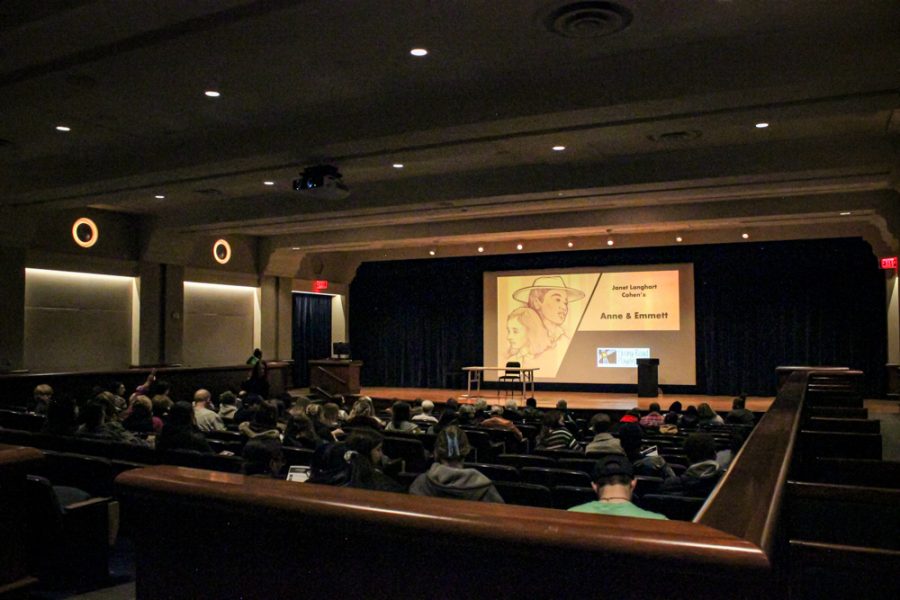GV puts on “Anne and Emmett”
Mar 28, 2022
Grand Valley State University hosted the the play “Anne and Emmett” at the Loosemore Auditorium in Devos Center on March 24.
“Anne and Emmett,” written by Janet Langhart, frames the violence that Anne Frank and Emmett Till experienced with a conversation between the two historical figures, from very different historical contexts.
The production was put on by a local theater group based in Grand Rapids, the Ebony Road Players. The group chose to do this piece partly because their works focus on the Black experience.
GVSU’s Rob Franciosi, professor of English, organized the event. Franciosi first became aware of the production over the COVID-19 pandemic. During 2021, Ebony Road Players were strictly online, which helped spread their message to a wider audience.
“I went in doubting whether putting Anne Frank and Emmett Till on the same stage would work,” Francisosi said “But I thought it worked very well,”
Franciosi was already planning on teaching a course about the holocaust for the Frederik Meijer Honors College, which prompted his decision to bring the production to GVSU. Franciosi decided to open the play to GVSU students and faculty.
“As I got to talking to the Ebony Road people, we thought ‘Let’s make this bigger and open this up to the campus community,’” Franciosi said.
Franciosi found the play meaningful, especially when considering the young ages of the historical figures being portrayed. Frank and Till were both barely teenagers. With Frank’s diary being famous and Till’s case being popularized, many forget that they were only children when they died.
“I came away from it really being more mindful of how young both Anne Frank and Emmett Till were,” Franciosi said. “She was only 15 and he was only 14.”
Franciosi said that many students have read some parts of Frank’s journal at some point in their lives. Throughout his class, students read the diary and the play. Franciosi hopes to teach the class again in the future.
“Racism and antisemitism have a long history, but we also think about those attitudes in an abstract way,” Franciosi said. “When you link them to specific individuals like Anne Frank or Emmett Till’s, I think it humanizes the larger debates. It’s very easy to be against something in the abstract or be offended in the abstract. But when it’s personalized and when you get to know these two young people for 90 minutes, it hits home more.”






















